The band Lóci játszik will give a concert in the Müpa drive-in series on the 18th of July. Lóci játszik started as a one-person, one-guitar band. Frontman Lóránt Csorba, singer and songwriter, became famous in Hungary for the soundtrack of the film For Some Inexplicable Reason. Lóci játszik won a talent show (Nagy-Szín-Pad!) for early career artists in 2017, it became the Breakthrough of the Year at the Hungarian Fonogram Music Awards, and it gained country-wise recognition. We talked to Lóránt Csorba, on the occasion of the upcoming concert, about inspiration during lockdown, the influence of the pandemic to music industry, and their new album that has no compulsion for conformity anymore.
Due to the lockdown, you couldn’t rehearse for months. Was it hard?
First, just like many other musicians, we realised that our parents might have been right when they had advised us to choose a normal profession. After reaching the bottom, we started to see the possibility in the situation as well. We had to make another use from our creative energies. As almost every member was in a different city, we had our artistic process online, and we created a whole album material that we are recording now. I’m here between two recording slots now.

How much inspiration could you get during lockdown?
In the early days I thought people will listen to a lot of music as they are at home, but then I realised I was wrong. Nobody sits in a car in a traffic jam, or in public transportation, which are the best times to listen to music. That was also my case, but I didn’t stop listening to music in a focussed way, like the new albums of Krúbi and Kiscsillag (Hungarian performer and band – translator’s note). Otherwise I have taken up with such cultural products that I usually don’t have time for – series and films that I missed in the last 10-15 years.
How do you prepare for the drive-in cinema concert?
I see a great chance in the challenge and a call for creativity. Concert cinema will give the audience a completely new experience. Lóci játszik has no stage fright, we keep talking to the audience, which is now impossible, so I guess we will pay more attention to each other. I even expect special musical moments that wouldn’t happen otherwise.
After such a long break, how did the first rehearsals go? Did you notice any difference?
We used the first rehearsals to put the new songs together, but we also took some of our oldies, and everyone has forgot a lot, but that’s natural. The most exciting was our first concert after the end of the lockdown. I was afraid to play without order, but when I looked at the band members on stage, I saw how they enjoy to do what they love the most again. By the end of the summer, after many gigs and sitting in the same minibus, sometimes we can’t stand each other anymore, but this time everyone was full with love for the situation. Nobody was nervous about problems, everyone loved to pack up after the concert, these were really nice human moments.

Members of the Csík Zenekar will accompany your concert on the 18th of July with instruments. Where did this idea come from?
Our second album, Krokodil, was published on the 1st of January 2017, 0:00. Suddenly we got a call from the violinist of Csík Zenekar, Attila Szabó. He introduced himself and said that he considers Krokodil to be one of the best Hungarian albums from the last 5 years. He only listened to it because he wanted to know who are these idiots who publish an album in the first minute of the new year, but was very positively surprised. You guys might not know, he said, but your songs are full with folk elements. Well, I’m from Vojvodina, so I might have had such unconscious influences in music. Attila met us many times afterwards, and we discussed to have a joint concert if it’s possible, and this time has come now. We play a song by Lóci játszik in a dance hall version, with Attila’s new lyrics, and we play 4-5 old songs that are renewed now with the contribution of Csík Zenekar. We set our folk elements free, and try to open in this direction.
What do you think, how much did the pandemic influence Hungarian music industry? What will be the developments of the next months?
Sometimes I’m more pessimistic, other times more realistic. Every band is afraid of having autumn concerts in the already planned schedule to be cancelled. My realist self says that with precautions, concerts can be held. My more optimistic self even says that after the 15th of August, when big concerts are allowed again, we will have 12 gigs within 15 days, so we can have everything that we couldn’t have in the summer, and then life will be normal again.
Some say that concerts will change fundamentally, as people won’t get rid of their fears.
I think it’s a bit too worried. Many are afraid of the virus, and this is why I’m happy to have this surely risk-free concert in the Müpa. Music has such a community-building effect that no virus can take. People might be a bit more careful in the beginning, but then they will start to dance and jump around again.
There have been some debates among musicians around social benefits for performers in May. Have you applied for that?
We are not among the top 10 bands of the country, maybe not even among the top 20, but we are somewhere in the middle. I had luck for being able to leave my rented flat and move to somewhere without rent. It also helped that small tax enterpreneurs didn’t have to pay taxes during the pandemic, so I had a bit more money for myself. I knew that many people didn’t have that, so I decided not to apply.
You mentioned the recording of your new album. How will that be?
The band members are recording now the flute parts of the song which title means ‘I’m afraid to be like Uncle Gideon’. (Uncle Gideon is a fictional Hungarian hairdresser in late singer Pál Szécsi’s hit; he is popular among female clients but is abused by his wife – translator’s note.) This will be a colourful, daring album. One part of it was written in January, the rest during lockdown. For our third album, we took previous feedbacks very seriously, and wanted to create something that everyone likes. This time we only listen to ourselves and follow our own conception.
Interview: Zsolt Várkonyi
Translation: Zsófia Hacsek

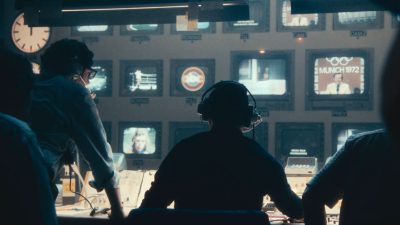
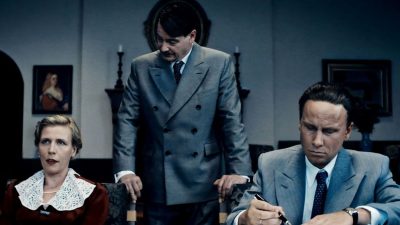
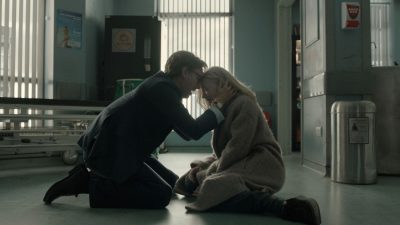

















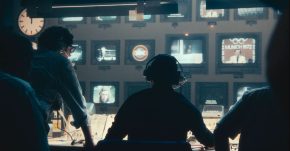
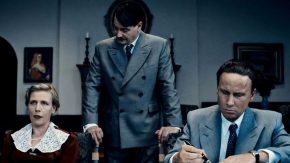
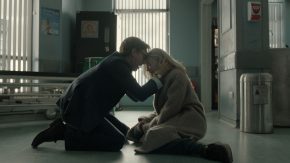


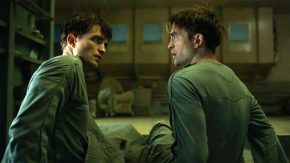
Comments
1 Responses to “No virus can take the community-building effect of music – interview with singer Lóránt Csorba”